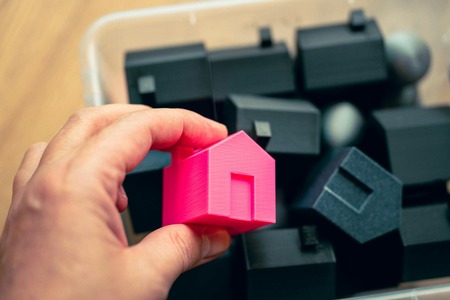Liens can blend a plethora of legal and financial complications that a homeowner should navigate. A lien is a legal hold or claim upon a property to compel payment of a debt. You may already know of a lien or it may still develop as a surprise. The two commonest questions that a homeowner raises are “Who can put a lien on property?” and “Can a family member or any other party place any sort of lien on my house?”
In this blog, we will deliberate on different types of liens, who can place them, and whether a family member or others such as creditors, debt collectors, or even neighbors can put a lien on your home.
Understanding the Difference Between Voluntary and Involuntary Liens

Before diving into the specifics of who can place a lien on your property, it’s important to understand the distinction between voluntary and involuntary liens. These two types of liens differ significantly in how they are placed on your property and the circumstances that lead to their imposition.
Voluntary Liens
A voluntary lien is a lien that you agree to or initiate yourself. The most common example of a voluntary lien is a mortgage. When you take out a mortgage loan to buy a home, you voluntarily agree to let the lender place a lien on your property. This lien remains in place until the mortgage is paid off. Essentially, you are using your home as collateral to secure the loan.
Another form of voluntary lien might occur if you borrow against the equity of your home in the form of a home equity loan. In both cases, you agree to allow the lender to put a lien on your house, and the lien is satisfied when the debt is repaid.
Involuntary Liens
An involuntary lien, on the other hand, is placed on your property without your consent. This can happen if you owe money to creditors, contractors, the government, or other entities that seek to secure payment through a lien. Involuntary liens are often the result of legal action and can include things like judgment liens, tax liens, or mechanic’s liens.
Who Can Put a Lien on a Property?

Several different entities or individuals can place a lien on your property. Let’s explore some of the most common types of liens and who can impose them.
1. Construction Lien
A construction lien, also known as a mechanic’s lien, can be placed on your home by contractors, subcontractors, or suppliers who performed work or provided materials for your property but were not paid. If you hire someone to renovate your home and fail to pay them, they can file a lien against your property to ensure payment.
2. Property Tax Liens
If you fail to pay your property taxes, your local government can place a lien on your home. Property tax liens are serious, as they take priority over other types of liens, including mortgages. If left unresolved, the government can eventually foreclose on the property to collect the unpaid taxes.
3. Judgment Liens
If a creditor sues you for an unpaid debt and wins in court, they can obtain a judgment lien. This gives them the legal right to place a lien on your property to satisfy the debt. Judgment liens can come from unpaid medical bills, credit card debt, or personal loans.
4. Tax Liens
Unpaid federal or state taxes can lead to a tax lien being placed on your property by the IRS or your state’s tax authority. Like property tax liens, these can be particularly damaging and are typically prioritized over other debts.
Can a Family Member Put a Lien on My House?

In some cases, a family member may attempt to place a lien on your house. But, can a family member actually put a lien on my house? The answer depends on the circumstances.
A family member can only place a lien on your property if they have a legal basis for doing so. For example, if you borrowed money from a family member and failed to repay the loan, they could potentially sue you for the debt. If they win the case, they could place a judgment lien on your house to secure payment.
However, a family member cannot place a lien on your home simply because they feel entitled to it or because of personal disagreements. There must be a legitimate financial dispute that leads to legal action.
Can a Creditor Put a Lien on My House for Unsecured Debt?
Unsecured debts, such as credit card debt or medical bills, are not initially backed by any property as collateral. However, creditors can still pursue a lien on your home if they obtain a court judgment against you. Once a judgment is in place, the creditor can file a lien, ensuring they have a legal claim to your home as a way of securing the unpaid debt.
While it’s not as common as liens for secured debts like mortgages or taxes, creditors can and do file liens for unsecured debts. This is why it’s important to resolve debt issues before they escalate to legal action.
Can a Debt Collector Put a Lien on Your House?
Yes, debt collectors can put a lien on your house, but only after they’ve successfully taken legal action. Like unsecured creditors, debt collectors must first sue you for the unpaid debt and win a court judgment. If the court sides with the debt collector, they can file a judgment lien on your property, giving them the right to collect from the sale of your home or other assets.
Can a Lien Be Placed on My House for a Spouse’s Debt?

If you live in a community property state, you could be responsible for your spouse’s debts, and a lien could potentially be placed on your home. In these states, most debts incurred by either spouse during the marriage are considered joint debts, meaning creditors can go after jointly owned assets, including your home.
However, in states that don’t follow community property laws, you’re generally not liable for your spouse’s debts unless you’ve co-signed or otherwise agreed to be responsible for the debt. As a result, a creditor would not be able to place a lien on your home for your spouse’s debt alone in these states.
Can a Neighbor Put a Lien on My House?
A neighbor cannot place a lien on your house out of personal grievances or disputes. However, there are situations where a neighbor could potentially seek legal action that results in a lien. For example, if your property has caused damage to a neighbor’s home (such as water damage from a leaky roof) and you fail to compensate them for repairs, they could sue you for the damages. If they win, they might be able to place a judgment lien on your property.
Can a Tenant Put a Lien on a Property?
Tenants generally cannot place a lien on a property they’re renting. However, if a landlord fails to return a tenant’s security deposit or violates the terms of the lease, the tenant could sue the landlord. If the tenant wins the case, they could potentially place a lien on the property to secure the owed funds. This is a rare occurrence and typically requires a legal dispute to escalate significantly.
Can a Lawyer Put a Lien on My House?
Yes, in some cases, a lawyer can place a lien on your property. If you hire an attorney and fail to pay for their services, they may be able to file a charging lien or attorney’s lien. These liens allow the lawyer to claim a portion of any funds you receive from a settlement or to place a lien on your property to secure payment for their services.
Can a Realtor Put a Lien on My House?
While it’s rare, a realtor or real estate agent could potentially place a lien on your home if there is a dispute over unpaid commissions. For example, if you sell your home and refuse to pay the agreed-upon commission to the realtor, they could sue for the unpaid amount. If they win the lawsuit, they could file a judgment lien against your home to secure the payment.
Can I Put a Lien on My Own Property?

A common question homeowners ask is, “Can I put a lien on my own property?” The short answer is no. You cannot place a lien on your property against yourself. Liens are legal claims placed by others to secure payment for debts. If you owe money on your home, that’s typically handled through your mortgage or other financial arrangements, not through a lien you place on yourself.
A Lien Has Been Found on a Property – Now What?
If you discover a lien on your property, it’s important to act quickly to resolve the issue. The first step is to understand what type of lien it is and who placed it. In some cases, you may be able to dispute the lien, negotiate with the lienholder, or simply pay off the debt to have the lien removed.
Understanding Lien Priority
Liens are not all created equal. Some liens, known as super liens, take priority over others. For example, property tax liens and some HOA liens are considered super liens, meaning they must be paid before other debts, including mortgages. Junior liens, such as second mortgages or unsecured judgment liens, are subordinate to higher-priority liens.
When selling a property with multiple liens, the lienholders are paid in order of priority, starting with the super liens. If there’s not enough equity in the property to cover all the debts, junior lienholders may receive little or nothing.



